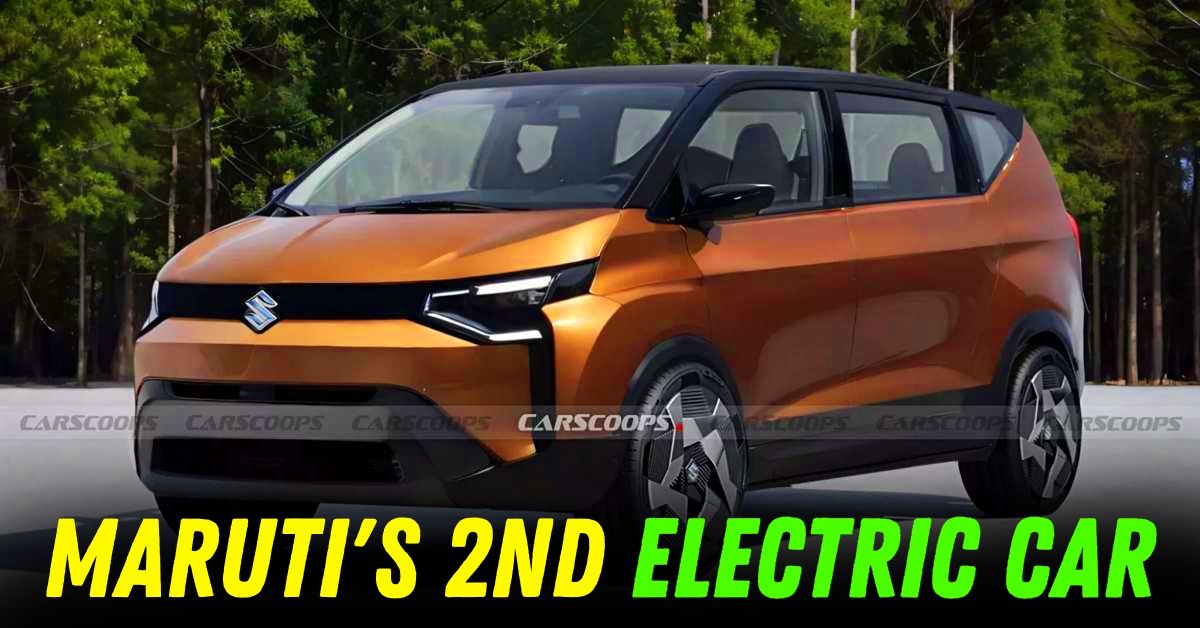Maruti's Second Electric Car For India Will Challenge MG Windsor, Kia Clavis EV: Details


India’s largest carmaker is setting the stage for a bold new step in its electric journey. Maruti Suzuki’s upcoming electric MPV, internally codenamed YMC, is being positioned not just as another EV but as a practical, premium family vehicle that could disrupt a segment still in its infancy. Targeted for a launch by September 2026, the YMC signals Maruti’s growing confidence in building electric vehicles with mass appeal - while retaining its hallmark of affordability and manufacturing strength.
Unlike many EVs that are adapted from existing petrol or diesel models, the YMC is being developed on a dedicated skateboard platform - Heartect-e. The same architecture will underpin the eVitara, ensuring both vehicles benefit from an EV-first design approach. This platform helps reduce compromises in packaging and performance, offering a flat floor, wider stance, and better weight distribution.
Buyers can expect two battery options, likely in the 40 kWh and 60 kWh range, delivering up to 450 Km of real world range depending on variant. The rear-axle-drive layout is expected to free up cabin space, making the most of the MPV’s footprint for family and luggage needs.
As with earlier collaborations, this model will also be shared with Toyota, which will release its own version based on the same underpinnings. This partnership allows both companies to reduce development costs and improve economies of scale while offering slightly different flavours of the same car for their respective customers.
What sets this collaboration apart is the growing shift away from simple badge engineering. Both brands now work more closely on development, tuning, and packaging to ensure differentiation while sharing the core structure and technology.
Production of the YMC will be housed at Suzuki Motor Gujarat’s Hansalpur facility, which already manufactures the eVitara. This plant recently crossed the 3-million-unit mark in cumulative output, showcasing its capability for high-quality, large-scale production.
Maruti is betting big on exports. The eVitara is already planned for over 100 countries, and the YMC is expected to follow the same route. Combined, the two models are projected to hit 2.5 lakh units in annual production within a few years. Initial volumes will likely start around 50,000 units before ramping up based on demand.
Maruti is eyeing a slice of the emerging electric MPV market, where MG’s Windsor EV and Kia’s Clavis are among the early contenders. The Windsor may begin at a headline-grabbing ₹9.99 lakh under its battery subscription model, but full ownership pricing sits between ₹13.49 lakh and ₹18.1 lakh.
Meanwhile, Kia’s Clavis EV is likely to be priced between ₹19 lakh and ₹26 lakh when it debuts. The YMC, expected to be priced around ₹22 lakh, will compete more directly with the Clavis. However, with Maruti’s traditional cost advantages, it could offer more value, especially to buyers looking for a three-row configuration and strong after-sales support.
The YMC is more than just another vehicle in the pipeline. It reflects a broader shift in Maruti’s thinking. Known primarily for budget hatchbacks and entry-level cars, the company is now making a serious bid for premium space within the EV market.
With India’s EV ecosystem maturing and charging infrastructure expanding and consumer interest growing; the timing of the YMC seems deliberate. Maruti has declared its intent to become India’s top EV manufacturer by 2027–28, and the YMC could play a decisive role in achieving that goal.
Its success will also test whether Maruti can move upmarket without losing the price-conscious efficiency that built its brand. If the YMC manages to balance features, space, and value in the way Indian families expect, it might just set the template for what an affordable electric MPV should be.